Jake Hofman
In-class Data Analysis Replications: Teaching Students while Testing Science
Aug 31, 2023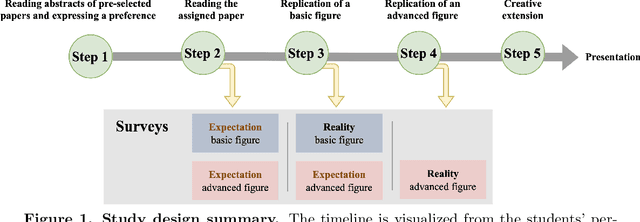
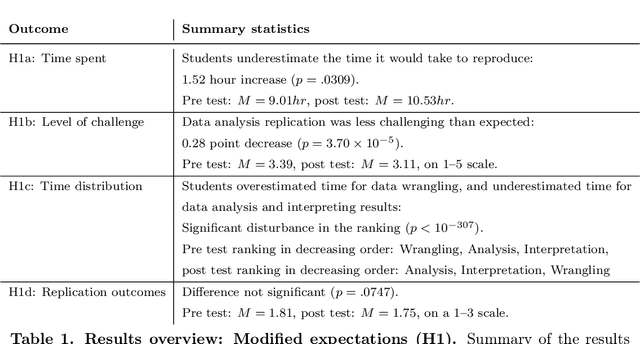
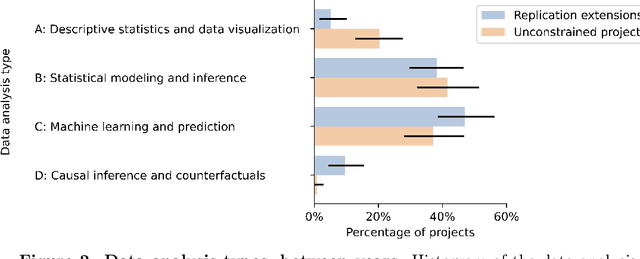
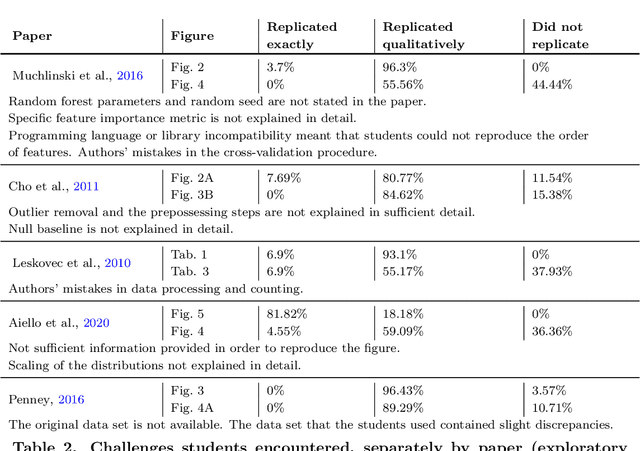
Abstract:Science is facing a reproducibility crisis. Previous work has proposed incorporating data analysis replications into classrooms as a potential solution. However, despite the potential benefits, it is unclear whether this approach is feasible, and if so, what the involved stakeholders-students, educators, and scientists-should expect from it. Can students perform a data analysis replication over the course of a class? What are the costs and benefits for educators? And how can this solution help benchmark and improve the state of science? In the present study, we incorporated data analysis replications in the project component of the Applied Data Analysis course (CS-401) taught at EPFL (N=354 students). Here we report pre-registered findings based on surveys administered throughout the course. First, we demonstrate that students can replicate previously published scientific papers, most of them qualitatively and some exactly. We find discrepancies between what students expect of data analysis replications and what they experience by doing them along with changes in expectations about reproducibility, which together serve as evidence of attitude shifts to foster students' critical thinking. Second, we provide information for educators about how much overhead is needed to incorporate replications into the classroom and identify concerns that replications bring as compared to more traditional assignments. Third, we identify tangible benefits of the in-class data analysis replications for scientific communities, such as a collection of replication reports and insights about replication barriers in scientific work that should be avoided going forward. Overall, we demonstrate that incorporating replication tasks into a large data science class can increase the reproducibility of scientific work as a by-product of data science instruction, thus benefiting both science and students.
How good is good enough for COVID19 apps? The influence of benefits, accuracy, and privacy on willingness to adopt
May 18, 2020
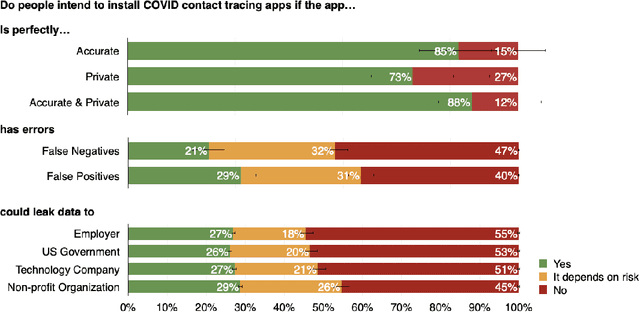
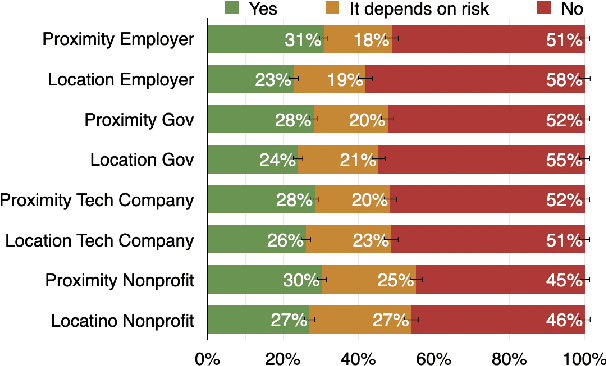
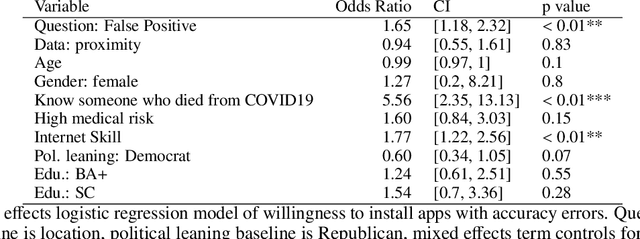
Abstract:A growing number of contact tracing apps are being developed to complement manual contact tracing. A key question is whether users will be willing to adopt these contact tracing apps. In this work, we survey over 4,500 Americans to evaluate (1) the effect of both accuracy and privacy concerns on reported willingness to install COVID19 contact tracing apps and (2) how different groups of users weight accuracy vs. privacy. Drawing on our findings from these first two research questions, we (3) quantitatively model how the amount of public health benefit (reduction in infection rate), amount of individual benefit (true-positive detection of exposures to COVID), and degree of privacy risk in a hypothetical contact tracing app may influence American's willingness to install. Our work takes a descriptive ethics approach toward offering implications for the development of policy and app designs related to COVID19.
 Add to Chrome
Add to Chrome Add to Firefox
Add to Firefox Add to Edge
Add to Edge